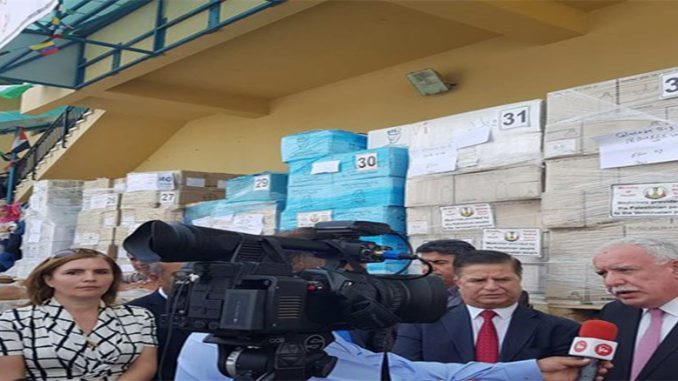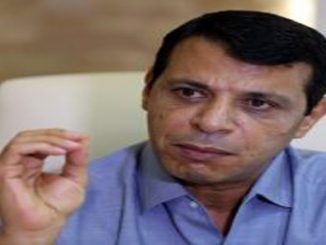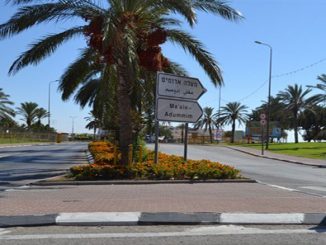
The Palestinian Authority (PA) has come under fire from Palestinians and Israeli alike after it announced it was sending medical supplies to Venezuela, amid accusations that the Ramallah-based government is responsible for creating the worst medications crisis the besieged Gaza Strip has seen in years through recent debilitating budget cuts.
Upon an order from Palestinian President Mahmoud Abbas, three truck-loads of medical supplies were sent to Venezuela, which Minister of Foreign Affairs Riad al-Malki said was an effort to “repay what it can for what the Venezuelan government has presented to the Palestinian people,” citing the donation of 15 million dollars that was used to construct an eye hospital in the Ramallah-area.
The aid delivery faced a wide backlash from Palestinians on social media, fueling anti-PA sentiment that has mounted in recent months due to a number of policies seen as a deliberate attempt to send the impoverished Gaza Strip further into a humanitarian catastrophe — by slashing funding for Israeli fuel, medicine, and salaries for civil servants and former prisoners — in order to wrest control of the territory from rival faction Hamas.
As the PA has restricted medicine deliveries to Gaza, it has also allegedly drastically reduced the number of permits it grants to Palestinians in the blockaded coastal enclave to get life-saving medical treatment abroad.
A recent public opinion poll showed that 62 percent of the Palestinian public want Abbas to resign, and also documented widespread public rejection the cuts to salaries and Israeli-supplied fuel in Gaza.
Despite this, Abbas has doubled down on his policies against the Gaza Strip, and threatened further repressive measures should Hamas not unconditionally abide by the PA’s demands to resolve the decade-long intra-Palestinian conflict.
The aid delivery to Venezuela also drew ire as it required PA coordination with Israel to ship from Israel’s Ashdod port. This comes as Abbas has also claimed to have upheld a freeze on all coordination with Israel, including its controversial security coordination — another primary source of anti-PA anger among Palestinians.
“While the health services has collapsed in Gaza (sic), Palestinian President Abbas has decided to send medical assistance from Ashdod to Venezuela,” the Twitter account for the Mavi Marmara, the Turkish-flagged ship that took part in the aid flotilla to Gaza in 2010, admonished on Monday.
Ahmed Jarrar, a freelance journalist in Gaza wrote on Facebook: “Venezuela is in our head, and helping them is a duty, but cutting the aid to Gaza and sending it to Venezuela — the same aid that was given to help Palestinians — it’s not logical and completely mad.”
Meanwhile, Yoav Mordechai, the Coordinator of Government Activities in the Territories (COGAT), responsible for enforcing Israeli policies in the occupied Palestinian territory, quipped on Facebook: “We draw the Palestinian Authority’s attention to the fact that traveling from Ramallah to Gaza is only one hour, while the distance between Venezuela and Ramallah is more than 10,000 kilometers.”
However, despite Israel’s best efforts to wash its hands of the ever worsening crisis in Gaza, with multiple officials describing it as an internal Palestinian issue between the Fatah-led PA and Hamas, rights groups — while acknowledging the PA’s role in exacerbating the humanitarian situation — have insisted that Israeli siege bears the brunt of responsibility for what the UN has described as an “unlivable” environment.
Israeli NGO B’Tselem has blamed the blockade for putting Gaza “in the throes of a humanitarian disaster,” adding that Israel was “consigning (Gaza’s) residents to living in abject poverty under practically inhuman conditions unparalleled in the modern world.”
“This is not some sort of natural disaster,” B’Tselem added. “Had that been the case, Israel would have likely sent in a humanitarian aid mission. Instead, the reality in Gaza is the result of Israel’s handiwork, achieved by its decade-long implementation of a brutal policy.”



